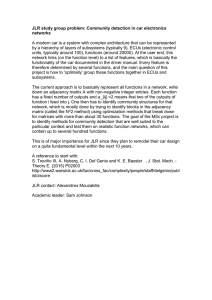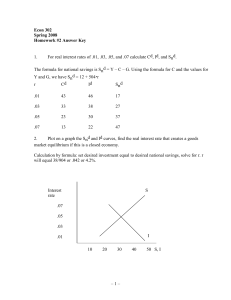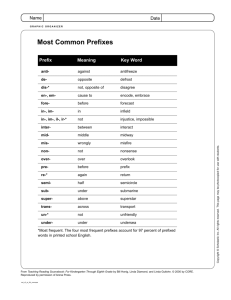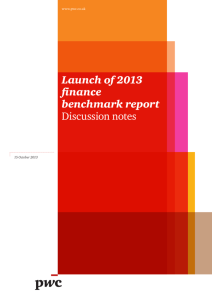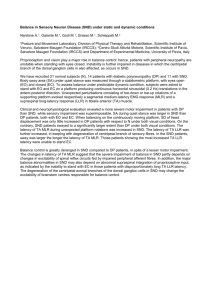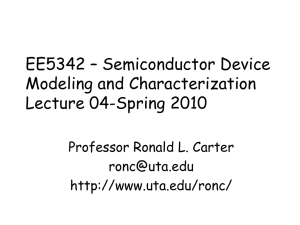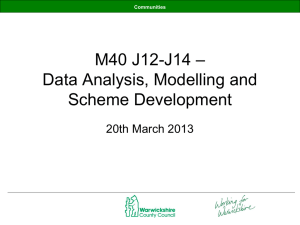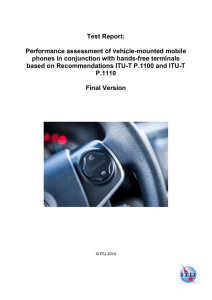Annex B An example of detailed testing report Manufacturer: ABC
advertisement
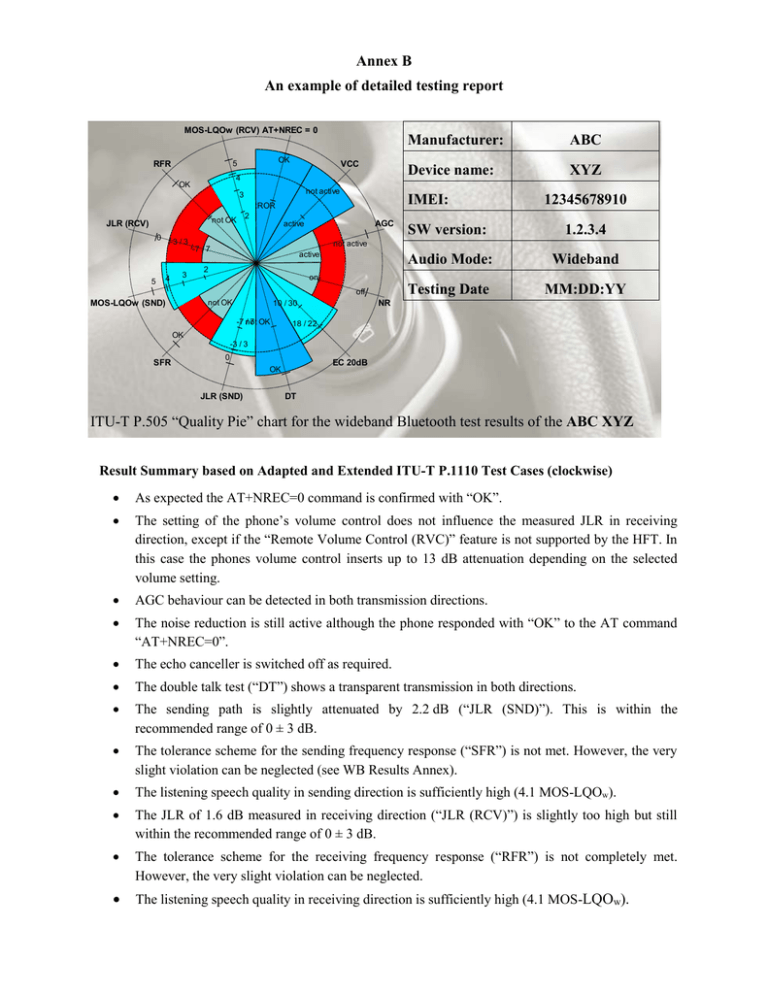
Annex B An example of detailed testing report MOS-LQOw (RCV) AT+NREC = 0 OK 5 RFR VCC 4 OK not active 3 0 5 -3 / 3 4 3 AGC active Device name: XYZ 12345678910 SW version: 1.2.3.4 Audio Mode: Wideband Testing Date MM:DD:YY not active -7 / 7 active 2 on off not OK MOS-LQOw (SND) ABC IMEI: ERROR 2 not OK JLR (RCV) Manufacturer: NR 10 / 30 -7 not / 7 OK 18 / 22 OK -3 / 3 SFR 0 EC 20dB OK JLR (SND) DT ITU-T P.505 “Quality Pie” chart for the wideband Bluetooth test results of the ABC XYZ Result Summary based on Adapted and Extended ITU-T P.1110 Test Cases (clockwise) As expected the AT+NREC=0 command is confirmed with “OK”. The setting of the phone’s volume control does not influence the measured JLR in receiving direction, except if the “Remote Volume Control (RVC)” feature is not supported by the HFT. In this case the phones volume control inserts up to 13 dB attenuation depending on the selected volume setting. AGC behaviour can be detected in both transmission directions. The noise reduction is still active although the phone responded with “OK” to the AT command “AT+NREC=0”. The echo canceller is switched off as required. The double talk test (“DT”) shows a transparent transmission in both directions. The sending path is slightly attenuated by 2.2 dB (“JLR (SND)”). This is within the recommended range of 0 ± 3 dB. The tolerance scheme for the sending frequency response (“SFR”) is not met. However, the very slight violation can be neglected (see WB Results Annex). The listening speech quality in sending direction is sufficiently high (4.1 MOS-LQOw). The JLR of 1.6 dB measured in receiving direction (“JLR (RCV)”) is slightly too high but still within the recommended range of 0 ± 3 dB. The tolerance scheme for the receiving frequency response (“RFR”) is not completely met. However, the very slight violation can be neglected. The listening speech quality in receiving direction is sufficiently high (4.1 MOS-LQOw). Wideband Results Sending Frequency Response (SFR) Receiving Frequency Response (RFR) 3rd octave FFT Size:4096 Overlap:75,0% Hanning L/dB 15 Ref.: r52321_frq_snd_bmwb.fft 3rd octave FFT Size:4096 Overlap:75,0% Hanning L/dB 15 10 10 5 5 0 0 -5 -5 -10 -10 -15 100 200 500 f/Hz 2000 5000 -15 100 200 500 f/Hz 2000 5000 Minimum distance -1.0 dB at 3550 Hz Minimum distance -0.6 dB at 3550 Hz Junction Loudness Rating (JLR SND): 2.2 dB Junction Loudness Rating (JLR RCV): 8.7 dB MOS-LQOw SND: 4.1 MOS-LQOw RCV: 4.1 AGC detection in sending direction AGC detection in receiving direction Level vs. time Manual(5,0 ms) L/dB[V ] 10 Level vs. time Manual(5,0 ms) L/dB[V ] 10 0 0 -10 -10 -20 -20 -30 -30 -40 -40 -50 -50 -60 0 1 2 t/s 4 5 6 Level vs. time Manual(5,0 ms) -60 0 Noise Reduction test (Stationary noise) 1 2 t/s 4 5 6 Echo Canceller test (20 dB simulated echo path) Ch.1 - Ch.2 L/dB 50 Spectrum avg. FFT Size:4096 Overlap:75,0%L/dB Hanning 0 30 -10 20 -20 10 0 -30 -10 -40 -20 -30 -50 -40 -60 2.5 5 NR is active 7.5 t/s 12.5 Ref.: r52322_frq_ 15 17.5 20 100 200 500 f/Hz 2000 EC is deactivated (19.9 dB) __________________ 5000 Ch.1 - Ch.2
